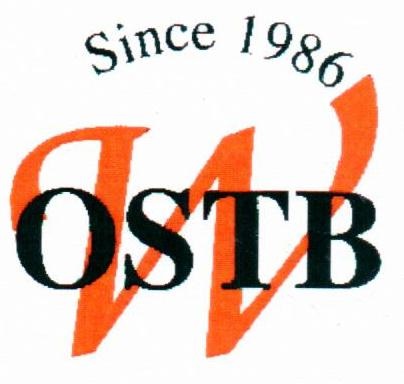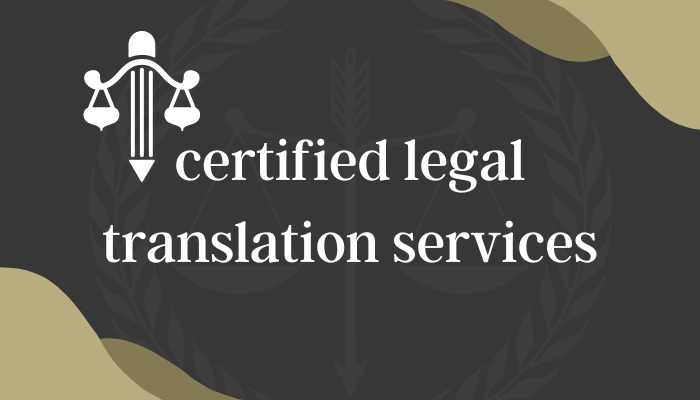Accurate communication across languages and cultures is increasingly vital, with our world becoming more interconnected. This is particularly true in legal contexts, where minor translation errors can have significant consequences. Therefore, certified legal translation services play a crucial role. This blog will delve into the definition of certified legal translation services, their challenges, the steps involved, why they are essential, and how to become a certified legal translator.
What is certified legal translation?
Certified legal translation services are a highly specialized field that demands extensive knowledge of legal terminology, concepts, and procedures.
Moreover, legal documents that require translation can vary widely, including contracts, agreements, court judgments, patent applications, intellectual property documents, and more.
To ensure that the original intent and meaning of the text are preserved in the translation, accurate translation of legal documents is essential.
However, legal documents often have complex sentence structures and use technical language.
Furthermore, legal systems and terminologies vary significantly between countries and jurisdictions. This variation adds complexity and nuance to the legal translation process.
Certified legal translators
Certified legal translators are trained professionals with linguistic proficiency and a deep understanding of legal terminology, concepts, and procedures.
In addition, they must have extensive knowledge of the legal systems and laws of both the source and target languages.
They are responsible for accurately translating legal documents while maintaining the original document’s legal and technical accuracy and authenticity.
What makes certified legal translation different from non-certified?
Non-certified legal translations are not authenticated by a sworn or certified translator. Still, they can be done by anyone, including a bilingual speaker or a professional translator who is not certified.
These translations are typically used for personal or informational purposes, such as translating legal documents for personal use or gaining a general understanding of the content.
On the other hand, certified legal translation services are authenticated by a sworn or certified translator authorized by a relevant authority, such as a government body, a court, or a professional association.
The certification process usually involves the translator signing a declaration of the accuracy and authenticity of the translated document, which is then attached to the translation.
The difficulties of meeting certification standards for legal translations.
Here are some of the main challenges that professional translators and translation agencies face when providing certified legal translation services:
Legal terminology:
Legal documents are often filled with complex terminology and specialized legal jargon that requires precise translation to communicate the intended meaning effectively.
As such, legal translators must comprehensively understand the legal systems and terminology used in the source and target languages.
Cultural differences:
Legal documents frequently mention local laws, customs, and traditions that might not be well-known to translators from foreign countries.
The translator must be well-versed in these cultural dissimilarities to deliver a precise translation.
Accuracy and precision:
Legal translations must be precise, accurate, and consistent, with no room for error.
Otherwise, mistakes or inaccuracies in translation can have serious consequences. Such consequences may even lead to legal disputes.
Confidentiality:
Legal documents are frequently sensitive and confidential. As a result, translators must uphold confidentiality and abide by data protection regulations.
Legal regulations:
Legal translations may require compliance with particular legal regulations, such as court requirements, notarization, and certification.
These requirements may vary depending on the document’s purpose and target audience.
Time constraints:
Legal documents frequently have time constraints, necessitating quick translations to meet legal deadlines or court requirements.
Multilingual capabilities of certified legal translation services.
The languages certified legal translation services offered can vary depending on the specific service provider.
However, many certified legal translation services offer translations for a wide range of languages, including but not limited to:
- Arabic
- Chinese (Simplified and Traditional)
- Dutch
- English
- French
- German
- Italian
- Japanese
- Korean
- Portuguese
- Russian
- Spanish
- Swedish
Risks of hiring unaccredited translation services Abu Dhabi
Using uncertified translation services in Abu Dhabi can lead to various legal implications, depending on the translated documents, the translation’s purpose, and the jurisdiction in which it is used.
Invalidated Legal Documents:
Legal documents like contracts, agreements, and court transcripts may need certified translations to be valid.
Using uncertified legal translations in Abu Dhabi may result in invalid documents, which can potentially cause legal disputes and financial losses.
Misrepresentation:
If the uncertified translation misrepresents the contents of a legal document, this could lead to legal issues such as breach of contract, fraud, or misrepresentation.
Professional Negligence:
Using an uncertified translation service could be considered professional negligence, especially if the translation has financial or legal consequences.
Non-Compliance with Regulations:
Specific industries, notably healthcare and finance, impose stringent regulations on translating documents.
Employing uncertified translations may lead to non-compliance with these regulations.
The steps involved in the certified legal translation process
There are variations in the certified legal translation UAE services process depending on the country and jurisdiction. Nonetheless, some general steps are commonly involved in the legal translation of Abu Dhabi:
1- Assessment:
The translator assesses the document to determine its nature, complexity, and level of legal terminology involved.
2- Selection:
Once the document has been assessed, the translator best suited for the job is selected.
The selected translator should have expertise in both the source and target languages and knowledge of legal terminology.
3- Translation:
The translator then begins translating the document from the source to the target language.
4- Review and proofreading:
After completing the translation, the translator reviews and proofreads the document to ensure accuracy and eliminate errors.
5- Certification:
The translator signs and stamps the translated document to certify its accuracy and completeness.
This certification usually includes a statement attesting to the translator’s qualifications and a declaration of the translation’s accuracy and completeness.
7- Notarization:
Depending on the jurisdiction, a notary public may need to notarize the translation.
The notary public signs and stamps the translated document, certifying its accuracy and validity.
8- Delivery:
Finally, the certified and notarised translation is delivered to the client.
The path to becoming a certified legal translator
Fluency in the source and target languages is essential to become a proficient legal translator.
This requires extensive practice and study. So, make sure you read, write, and speak in both languages regularly. Here are some tips:
- Consider obtaining formal education or training in legal translation. This will equip you with the necessary knowledge and skills to become a certified legal translator.
- Gain professional experience to enhance your chances of becoming a certified legal translator.
- Seek internships, freelance work, or volunteering opportunities to gain practical experience.
- Apply for certification in legal translation through programs like the American Translators Association (ATA). You will need to pass an exam that tests your proficiency in legal translation to become certified.
- Maintain and renew certification periodically. This will ensure you stay up-to-date with the latest legal translation practices and maintain your credibility as a certified legal translator.
The critical role of certified legal translation in immigration
Certified legal translation services are crucial in immigration cases since they guarantee accurate translation and a complete understanding of all legal documents and information by all parties involved.
Typically, immigration cases require the submission of various legal documents such as:
- Birth certificates.
- Marriage certificates.
- Passports.
- And other critical legal documents.
Therefore, accurate translation of the documents into the official language of the destination country is necessary to allow immigration officials to review and evaluate them properly.
A certified legal translator can provide this translation and certify its accuracy and completeness.
Moreover, certified legal translation is vital in immigration cases because errors or inaccuracies in translations can lead to significant delays, misunderstandings, or even rejections of visa or immigration applications.
Additionally, it can help prevent fraud or misrepresentation since immigration officials must be sure that the submitted documents are authentic and accurately reflect the information contained in the original document.
How certified legal translation enhance the patent application process?
The precise translation of patent documents is a must for complying with regulations in various countries, making certified legal translation critical in patent applications.
A certified professional translator completes this translation to ensure the original document’s accuracy, completeness, and authenticity.
Authorities must evaluate the patent application correctly, and a poor translation can lead to delays, rejections, or even loss of patent rights.
Additionally, it is crucial in patent litigation and enforcement, ensuring patent rights are protected and enforced across different jurisdictions.
Thus, certified legal translation is vital to the patent application process that safeguards intellectual property rights.
The vital importance of certified legal translation in successful mergers and acquisitions
In M&A deals, certified legal translation ensures all parties comprehend the agreement, regardless of language and cultural background.
As parties involved in M&A transactions often originate from different countries with different legal systems, it is essential to ensure that all documents are accurately translated to prevent misunderstandings.
Certified legal translation also guarantees that all parties understand the terms and conditions of the agreement, including price, scope, timeline, legal obligations, and liabilities.
Ensuring fairness and accuracy in arbitration with certified legal translation
Certified legal translation is essential to arbitration cases because it allows all parties to participate fully.
This type of translation provides accurate and reliable translations of legal documents, witness statements, and other relevant materials.
As a result, all parties can fully understand and be understood, promoting effective communication and fair dispute resolution.
In addition, many jurisdictions require contracts and agreements presented as evidence in arbitration cases to be accurately translated by law.
This requirement ensures that all parties can comprehend the content and implications of the documents.
How to guarantee accuracy in certified legal translation services?
Certified legal translation services require utmost precision and meticulousness, as even minor mistakes or oversights can have significant ramifications.
Below are some tips for ensuring accuracy in certified legal translation services:
Hiring a Professional Translator:
Choosing an expert translator with the qualifications and experience is essential to ensure high-quality legal translation.
Searching for a translator certified by a recognized organization, such as the American Translators Association (ATA) or the Chartered Institute of Linguists (CIOL), is recommended.
Verifying Language Proficiency:
Verifying that the translator has native-level proficiency in both the source and target languages and is familiar with legal terminology and concepts is crucial.
Clarifying the Scope of Work:
Clearly defining the scope of the translation project is essential. This includes specifying the purpose of the translation, the intended audience, and any specific requirements or deadlines.
Providing Access to Relevant Documents:
To ensure consistency and accuracy, it is essential to provide the translator with access to all relevant documents.
Reviewing and Proofreading:
To catch any errors or omissions and ensure accuracy and consistency, it is advisable to have the translated document reviewed and proofread by a second qualified translator or a legal professional who is fluent in both languages.







